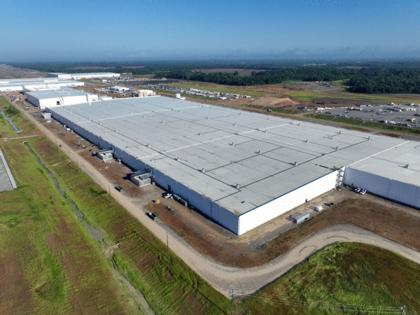Ford cuts EV spending, updates launch schedule, including next-generation EV truck delay
Published in Automotive News
Ford Motor Co. said Wednesday it's cutting capital expenditures in electric vehicles, delaying the launch of its next-generation all-electric pickup truck set to launch in Tennessee and has changed plans for a forthcoming three-row SUV to be hybrid, not all-electric.
EV sales are growing, but it's at a slower rate than what the industry had expected as consumers remain hesitant to adopt the alternative powertrain. The Dearborn, Michigan, automaker says the new launch schedule will allow it to introduce the vehicles to be profitable within the first year, adopt advances in battery technology and ensure it can continue to sell vehicles under regulatory greenhouse-gas tailpipe emissions and fuel economy standards.
“We’re committed to creating long-term value by building a competitive and profitable business,” Chief Financial Officer John Lawler said in a statement. “With pricing and margin compression, we’ve made the decision to adjust our product and technology roadmap and industrial footprint to meet our goal of reaching positive (operating income) within the first 12 months of launch for all new models.”
As a result of the changes, Ford’s mix of annual capital expenditures dedicated to pure electric vehicles will decline to 30% from about 40%. The moves are "consistent" with Ford's previously stated plan to cut or delay $12 billion in EV spending, Lawler said on a conference call.
Ford will introduce a new commercial van that will begin production in 2026 at its Ohio Assembly Plant. The company didn't specify the sizing of that vehicle. Ford currently has available the large E-Transit commercial van.
In 2027, Ford will launch two all-electric pickups: a medium-sized truck built on the platform designed by its California skunkworks teams and the next-generation F-Series truck at the new Tennessee Electric Vehicle Center. The company didn't specify where the midsize pickup will be built. The launch of the full-size truck codenamed "Project T3" in the second half of 2027 is postponed by 18 months.
Additionally, Ford is canceling plans to launch a forthcoming three-row SUV as an EV. Instead, it will launch as a hybrid, though the automaker declined to specify when or where. It originally has been expected to launch at the company's Oakville Assembly Plant in Ontario, Canada, but Ford instead opted to expand Super Duty truck production there.
Because of this decision, the company will take a special non-cash charge of about $400 million for the write-down of certain product-specific manufacturing assets for the previously planned all-electric three-row SUVs. These actions also may result in additional expenses and cash expenditures of up to $1.5 billion, which will be reflected in future quarters as a special item.
Ford additionally shared additional changes on sourcing of EV batteries. The Blue Oval is working with LG Energy Solutions to move some Mustang Mach-E battery production to Holland, Michigan, from Poland next year to qualify for Inflation Reduction Act benefits, including manufacturing and consumer subsidies.
Beginning in mid-2025, one of the battery plants at the automaker's joint venture with SK On Inc. in Kentucky will manufacture cells for the E-Transit to increase range as well as the F-150 Lightning truck. This will result in cost improvements sooner than planned, according to the company.
Despite the truck launch delay at BlueOval SK at BlueOval City in Tennessee, the site will produce cells starting in late 2025 for Ford’s new electric commercial van. It also will produce cells for the next-generation electric truck as well as future emerging technology electrified vehicles.
Meanwhile, production of less-expensive, less-dense lithium-iron-phosphate batteries in Marshall, Michigan, remains on schedule to launch in 2026, which also will contribute to benefits from the IRA.
“An affordable electric vehicle starts with an affordable battery,” Ford CEO Jim Farley said in a statement. “If you are not competitive on battery cost, you are not competitive.”
©2024 www.detroitnews.com. Visit at detroitnews.com. Distributed by Tribune Content Agency, LLC.








Comments